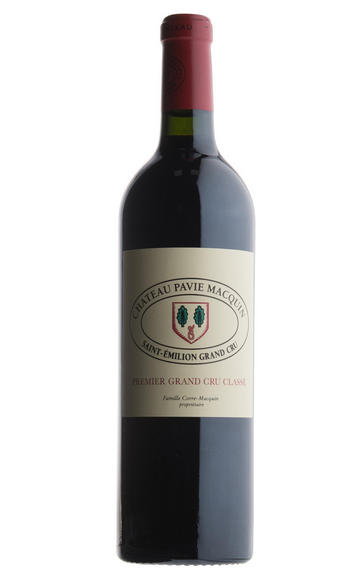
2020 Château Pavie Macquin, St Emilion, Bordeaux
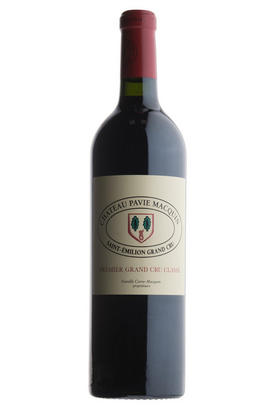
Critics reviews
Drink from 2025 to 2045
Neal Martin, Vinous (May 2021)
Drink from 2030 to 2055
Antonio Galloni, Vinous (June 2021)
Drink from 2028 to 2044
Jane Anson, Decanter (April 2021)
Drink 2025 - 2055
Lisa Perrotti-Brown MW, Wine Advocate (May 2021)
Drink 2028 - 2044
Jancis Robinson MW, JancisRobinson.com (April 2021)
James Suckling (April 2021)
Jeb Dunnuck, jebdunnuck.com (May 2021)
Drink 2032 - 2052
Michael Schuster, The World of Fine Wine (May 2021)
About this WINE
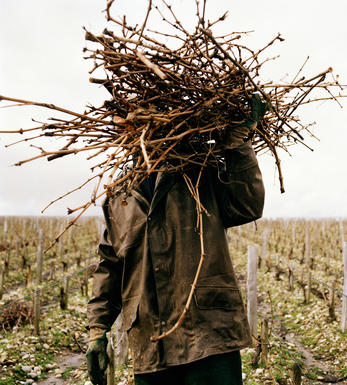
Chateau Pavie Macquin
Château Pavie Macquin, a St Emilion Premier Grand Cru Classé (B), is a property that has hit form in the last 10 years and is now producing first-class wines. It is located east of the village of St Emilion and its 15 hectares of vineyards are located on the Côte Pavie, adjacent to the vineyards of Pavie, Pavie-Decesse and Troplong-Mondot. Since 1990 Nicholas Thienpoint Château has been in charge of the property. A pioneer of the Right Bank, Nicolas Thienpoint first pushed the boundaries with organic then biodynamic winemaking in developing the property’s style, helped by his soon-to-be-famous maître de chai, Stéphane Derenoncourt, who joined the team in 1990 and still consults today. Pavie Macquin's wine is a blend of 70% Merlot, 25% Cabernet Franc and 5% Cabernet Sauvignon.
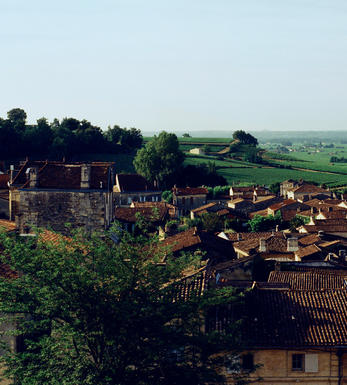
St Émilion
St Émilion is one of Bordeaux's largest producing appellations, producing more wine than Listrac, Moulis, St Estèphe, Pauillac, St Julien and Margaux put together. St Emilion has been producing wine for longer than the Médoc but its lack of accessibility to Bordeaux's port and market-restricted exports to mainland Europe meant the region initially did not enjoy the commercial success that funded the great châteaux of the Left Bank.
St Émilion itself is the prettiest of Bordeaux's wine towns, perched on top of the steep limestone slopes upon which many of the region's finest vineyards are situated. However, more than half of the appellation's vineyards lie on the plain between the town and the Dordogne River on sandy, alluvial soils with a sprinkling of gravel.
Further diversity is added by a small, complex gravel bed to the north-east of the region on the border with Pomerol. Atypically for St Émilion, this allows Cabernet Franc and, to a lesser extent, Cabernet Sauvignon to prosper and defines the personality of the great wines such as Ch. Cheval Blanc.
In the early 1990s there was an explosion of experimentation and evolution, leading to the rise of the garagistes, producers of deeply-concentrated wines made in very small quantities and offered at high prices. The appellation is also surrounded by four satellite appellations, Montagne, Lussac, Puisseguin and St. Georges, which enjoy a family similarity but not the complexity of the best wines.
St Émilion was first officially classified in 1954, and is the most meritocratic classification system in Bordeaux, as it is regularly amended. The most recent revision of the classification was in 2012
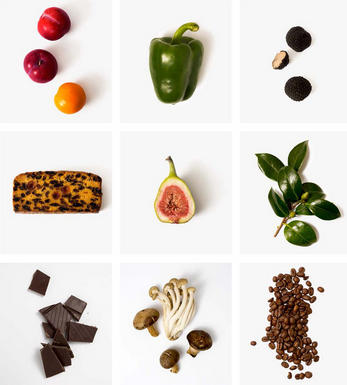
Merlot
The most widely planted grape in Bordeaux and a grape that has been on a relentless expansion drive throughout the world in the last decade. Merlot is adaptable to most soils and is relatively simple to cultivate. It is a vigorous naturally high yielding grape that requires savage pruning - over-cropped Merlot-based wines are dilute and bland. It is also vital to pick at optimum ripeness as Merlot can quickly lose its varietal characteristics if harvested overripe.
In St.Emilion and Pomerol it withstands the moist clay rich soils far better than Cabernet grapes, and at it best produces opulently rich, plummy clarets with succulent fruitcake-like nuances. Le Pin, Pétrus and Clinet are examples of hedonistically rich Merlot wines at their very best. It also plays a key supporting role in filling out the middle palate of the Cabernet-dominated wines of the Médoc and Graves.
Merlot is now grown in virtually all wine growing countries and is particularly successful in California, Chile and Northern Italy.


Buying options
Add to wishlist
Description
Merlot 80%, Cabernet Franc 20%
Cyrille Thienpont observed that the record levels of spring rain and summer drought made this a year of extreme contrasts. This accentuated the individual characteristics of his clay and limestone parcels here. The wine shows this precisely: there is ample, lush fruit on the nose, with succulence and an almost candied element. Then the wine moves towards deeper, more grippy mineral notes; it finishes with muscularity and tannin. There is a joyous fruity aspect, then countered by rigour and structure. This is a big wine which should eventually be something rather special.
Drink 2028-2050
wine at a glance
Delivery and quality guarantee